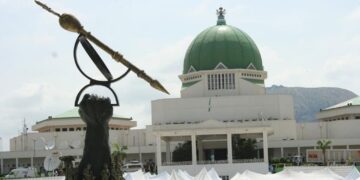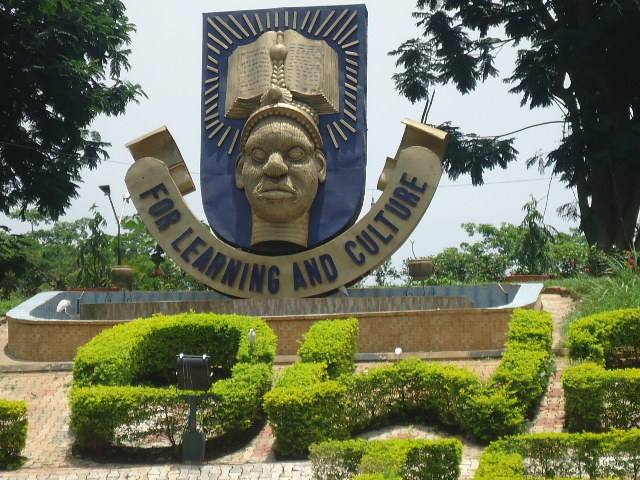[ad_1]
The Inspector-General of Police, Usman Baba-Alkali says the police have devised strategies to arrest and prosecute politicians moving on election days with tons of cash for vote buying.
Mr Baba-Alkali stated this on Monday in Abuja at a one-day Stakeholders Summit on Addressing the Influence of Money on the 2023 General Election.
“Concerted efforts are being made by the Nigeria police as the lead agency in electoral security management to ensure that the use of money is not allowed to influence the 2023 general elections.
“We will ensure that at least, this menace is brought to the barest minimum.
“We will achieve this in synergy with sister security agencies, anti-graft and intelligence agencies and other stakeholders,” he said.
Mr Baba-Alkali, represented by Assistant Inspector General of Police, Operations, Bala Ciroma said already, a lot of arrests have been made of persons buying voter registration cards to rig the 2023 elections.
He added that some political thugs have also been arrested and are being prosecuted in courts.
“We will also ensure that the police X-Squad, intelligence officers and investigators are moved to the field to ensure that politicians moving on election days to buy votes are apprehended and dealt with according to the provisions of the law,” he added.
The I-G said the Force had embedded intelligence officers during political rallies to identify with precision, persons encouraging and perpetrating violence.
“Let me state again emphatically that the use of money during the 2023 elections is unacceptable and we will do all we can within the confines of the law to bring the offenders to book.
“Some politicians spend huge sums of money to get elected to office, thus their priority having been elected is to recoup the money they spent during the election.
“The consequence of this is that those elected provide poor governance and deny the public the benefit of good governance, as they most likely are not the best candidates.
“When elections are influenced by money, credibility of the process is questioned. This leads to rancour and the possibility of violence after the elections.”
Mr Baba-Alkali said the police were also ready to deal with sponsors of violence before, during and after the elections.
“Some politicians often use money to sponsor restive youths who are readily available and willing to be mobilised as political thugs and to wreak mayhem on opponents and voters.
“We have seen this in the current political campaigns and this violence could spread to the post election if the use of money is not checked.
“We cannot rule out attempts to entice the political umpires and security agents with money to influence the outcome of elections,” he said.
The I-G warned that anyone caught would face the full wrath of the law.
Abdulrasheed Bawa, Chairman, Economic and Financial Crimes Commission (EFCC) described vote buying as a major obstacle to free, fair and credible elections in Nigeria.
Mr Bawa who was represented by his Chief of Staff, Hadiza Zubairu, urged all Nigerians desirous of a better future not to be cajoled into relinquishing their right to good governance.
He said Nigerians must make deliberate and concerted efforts to make informed choices during the elections.
“We must collectively work to ensure we change the narrative around the current practice of deceptive election, otherwise that will not only translate to flawed political recruitment processes, but will result in a great disservice to our dear country, Nigeria.
“We have consistently witnessed the continuous exploitation of a large section of the society by politicians who succeed in cajoling the vulnerable electorates to trade in their votes for a paltry sum,” Mr Bawa said.
He also expressed concern that the vulnerable have continued to remain oblivious of the consequence of vote selling.
“They fail to realise that when they sell their votes, they also give up their rights to demand for transparency and accountability from the elected leaders.
“They sell their future and that of their unborn children for an insignificant and greatly under-valued sum,” he added.
The EFCC boss assured that the commission would remain focused and committed to preventing vote buying and safeguarding the electoral process.
He added that the EFCC has been engaged in covert and overt surveillance to track vote buyers at polling units, and investigate and prosecute politicians who receive funds to influence election outcomes.
“Cases in point are the prosecution of certain politicians who received funds in order to influence the outcome of the 2015 elections.”
He recalled that the commission had in 2019 deployed its operatives to polling units across the country to discourage inducement of voters.
Mr Bawa said some of the offenders were arrested, prosecuted and convicted.
“These efforts were also repeated at the Osun and Ekiti states elections, as well as in the recently concluded election primaries of political partie,” Mr Bawa said.
On his part, Professor Bolaji Owasanoye, Chairman, Independent Corrupt Practices and Other Related Offences Commission (ICPC), said vote buying has the tendency to scuttle good governance.
According to him, a government that is purchased will have no obligation to the people.
“If we don’t have this conversation and take these measures that were being discussed today, we will become helpless and frustrated.
“The knowledge that this process cannot and should not be manipulated will always put an elected government on their toes to deliver if they win freely, fairly and squarely.
“A faulty and corrupt electoral process emboldened incompetent and corrupt government. They don’t have to care about our feelings and our complaints.
“In such a situation, impunity will reign and corruption will thrive. This is what this conversation is designed to prevent from happening.
“We may not get it 100% right but the journey of 1000 miles must begin with the first step and this is the major big step we have taken, ” he said.
The summit was organised by the Independent National Electoral Commission in collaboration with National Broadcasting commission, EFCC, ICPC among others.
It is in line with the federal government’s resolve to ensure strict compliance with financial laws during campaigns and the elections.
(NAN)
[ad_2]







